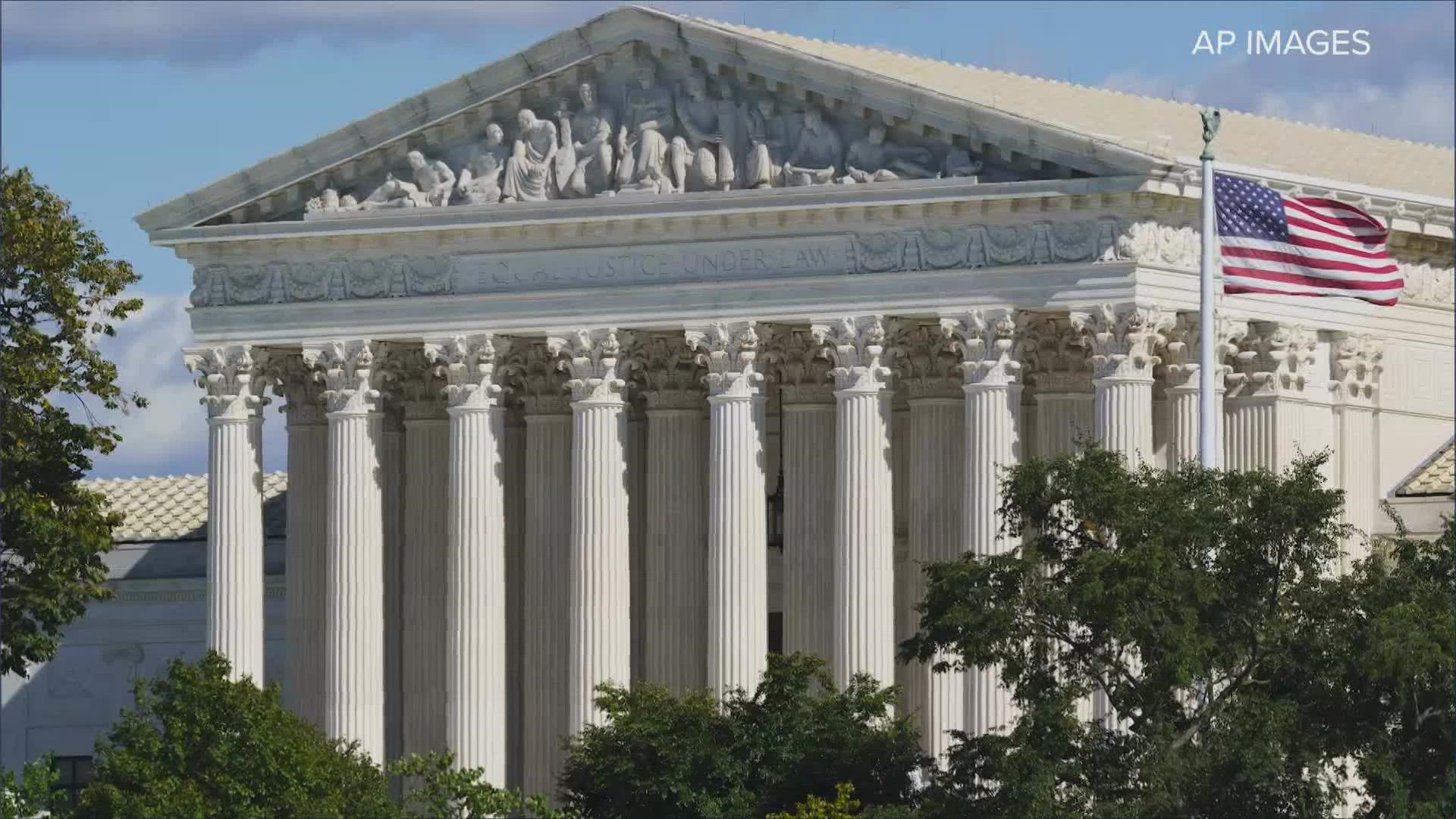DALLAS — The Supreme Court has ruled that Texas abortion providers can sue over the state’s ban on most abortions, but the justices are allowing the law to remain in effect.
The court acted Friday, more than a month after hearing arguments over the law that makes abortion illegal after cardiac activity is detected in an embryo. That’s around six weeks before some women even know they are pregnant. There are no exceptions for rape or incest. The law has been in place since Sept. 1.
The outcome is at best only a partial victory for abortion providers. The same federal judge who already has once blocked the law almost certainly will be asked to do so again. But then his decision will be reviewed by the 5th U.S. Circuit Court of Appeals, which has twice voted to allow enforcement of the abortion ban.
The case could return to the justices and so far there have not been five votes on the nine-member court to put the law on hold while the legal fight plays out.
Justice Sonia Sotomayor, in her dissenting opinion, said the majority opinion by the court "will have far-reaching repercussions." Justice Stephen Breyer and Justice Elena Kegan joined Sotomayor's opinion
"My disagreement with the Court runs far deeper than a quibble over how many defendants these petitioners may sue," Sotomayor wrote. "The dispute is over whether States may nullify federal constitutional rights by employing schemes like the one at hand. The Court indicates that they can, so long as they write their laws to more thoroughly disclaim all enforcement by state officials, including licensing officials."
The majority opinion, written by Justice Neil Gorsuch, comes weeks after justices heard arguments from Texas officials and the U.S. Department of Justice, which challenged the law, along with a group of abortion providers.
Gorsuch in the majority opinion said there are "many paths" for pre-enforcement challenges of laws such as the one Texas passed.
"If other States pass similar legislation, pre-enforcement challenges like the one the Court approves today may be available in federal court to test the constitutionality of those laws," Gorsuch wrote. "Again, too, further pre-enforcement challenges may be permissible in state court and federal law may be asserted as a defense in any enforcement action."
The Texas law, Senate Bill 8, which bans abortions after a fetal heartbeat has been detected, was passed in May and took effect in September, effectively halting all abortions in the state.
"It's not a good decision if you care about Roe v. Wade," Brian Owsley, a constitutional law professor at UNT Dallas College of Law, told WFAA in an analysis of the court's ruling. "This is a decision basically, in many ways, refuses to uphold the court's precedent in Roe v. Wade."
Watch the initial analysis of the Supreme Court ruling:
RELATED: TIMELINE: Legal challenges to the Texas Heartbeat Act, the state's near-total ban on abortions
Whole Woman’s Health, an abortion provider in Fort Worth that challenged the law, tweeted that they “won on very narrow grounds” as they are able to continue their lawsuit against the Texas health department, medical board, nursing board and pharmacy board.
“We aren’t entirely sure what’s going to happen. It’s disappointing that #SB8 is so blatantly cruel and unconstitutional and the court has decided not to grant us relief. While we hold out hope for the rest of our lawsuit, the court still failed us today,” the tweet said.
Other states have passed similar "heartbeat" bills, though the Texas law had an added element: private citizens anywhere can sue anyone who helps someone get an abortion in Texas after six weeks, including abortion providers. The person filing the lawsuit would not need to have a connection to the person or provider they are suing.
A crucial element in the battle over Roe v. Wade will be the court's ruling on Mississippi's abortion law, which bans abortions after 15 weeks.
The court, which has not allowed states to ban abortion before roughly 24 weeks, heard arguments in the Mississippi case last month.
Depending on how the court rules in the Mississippi law, "we might be seeing the end of Roe v. Wade in the coming months," Owsley said.
The Texas law provided no exemptions for survivors of rape or incest. When faced with backlash, Gov. Greg Abbott defended that element of the law by saying Texas' goal "is to eliminate rape."
Texas officials have argued that the federal challenge to the law was "extraordinary in its breadth and consequence, having an impact on precedents that have existed far longer than any right to abortion has been recognized," according their filings in court.
Texas' argument hinged on the procedural aspect of the law, that since private citizens, not the state, would be enforcing the law, then it could not be blocked by a federal court.
U.S. officials in their court filings called the Texas law a "gambit" that was "designed to nullify this Court's precedents and to shield that nullification from judicial review."
"If Texas is right, no decision of this Court is safe," one filing said. "States need not comply with, or even challenge, precedents with which they disagree. They may simply outlaw the exercise of whatever rights they disfavor; disclaim state enforcement; and delegate to the general public the authority to bring harassing actions threatening ruinous liability. On Texas's telling, no one could sue to stop the resulting nullification of the Constitution."

